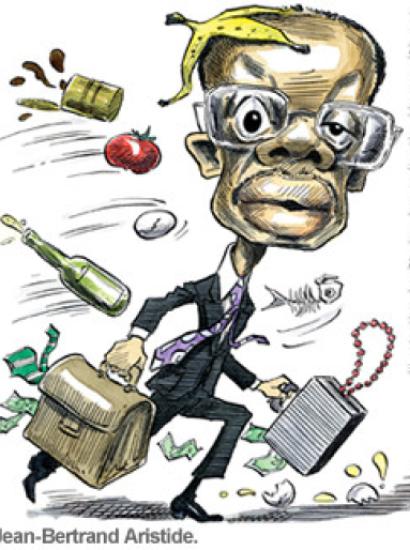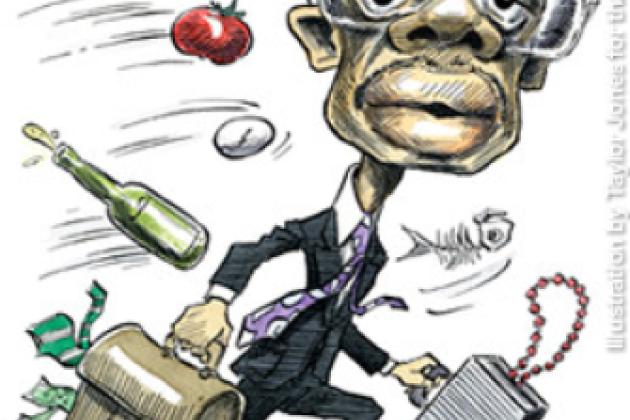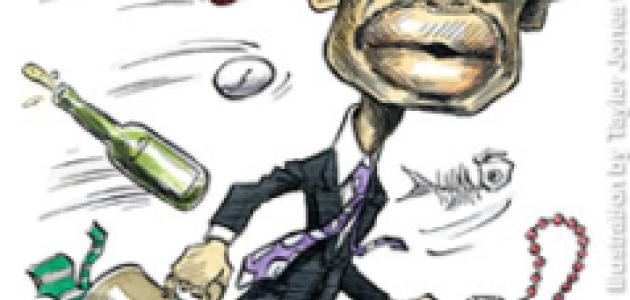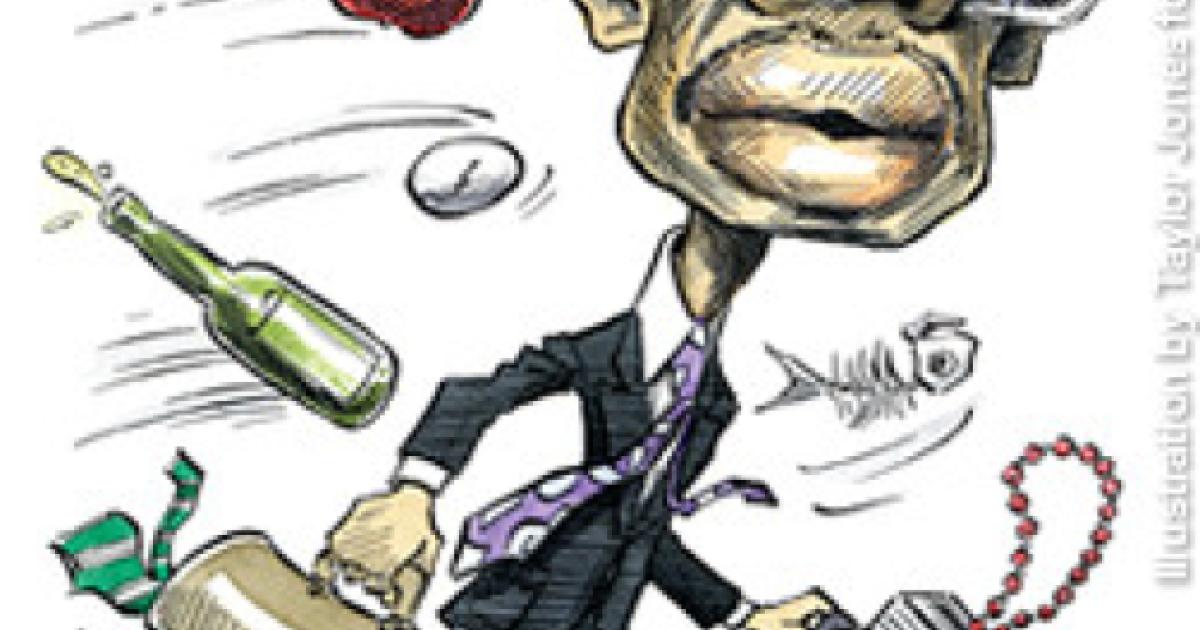- International Affairs
- US Foreign Policy
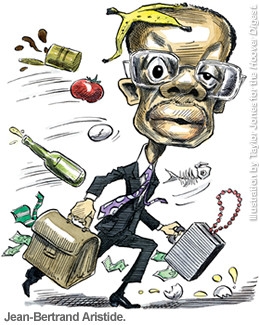
On February 29, 2004, following a three-week uprising in which Haitian rebels seized control of the central and northern portions of the country and threatened to seize the capital, Port-au-Prince, President Jean-Bertrand Aristide resigned his office and left the country for temporary asylum in the Central African Republic. (Aristide ultimately took exile in South Africa in late May.)
In the wake of Aristide’s departure, an international peacekeeping force, made up of 3,600 troops from the United States, Canada, Chile, and France, partially restored stability to the island nation, but the rebels still controlled much of the rural area when the transition to the U.N. peacekeeping force occurred on June 1. Less than 10 years had passed since the last United States–led intervention, Operation Uphold Democracy, in September 1994, which restored the democratically elected President Aristide to power and deposed the military junta that had ousted him by coup in 1991. This is the third U.S. intervention in less than a century (the United States also occupied Haiti from 1915 until 1934).
Haiti is widely recognized as a failed state. Many would question whether we should engage in nation building on the island, considering our previous efforts there and the country’s lack of progress despite periodic infusions of foreign aid. Nation building became part of our foreign policy under the Clinton administration, with its interventions in Somalia, Bosnia, and Haiti. The Bush administration came into office opposed to nation building, but after 9/11, the U.S. invasions of both Afghanistan and Iraq have resulted in long-term commitments to nation building. Thus, we as a nation have ample experience, gleaned from previous nation-building commitments, to plan and implement the necessary effort in Haiti.
What is needed to assist Haiti to rejoin the international community of legitimate nation-states and for it to comply with international norms? The experience of the United States and the international community in assisting Haiti from 1994 to 2001 clearly shows that more is needed than a short-term humanitarian response or crisis management effort. To be successful, the United States and the international community will have to commit to a long-term political, socioeconomic, and security development plan. This will require political will, a flexible time line, and a long-term commitment of resources to assist Haiti in reestablishing democracy and conducting itself as a sovereign state, able to respond to its responsibilities to both its own people and the international community. If this type of long-term effort is not implemented to foster the growth of its political and socioeconomic institutions, then Haiti will continue to fail and will periodically present the United States and the international community with the necessity of intervention and costly humanitarian assistance and peacekeeping operations.
Reasons for Nation Building in Haiti
Although at the time of this writing, the United States was planning to withdraw its forces from Haiti by the end of June, it would be in our national security interests to fully support a new long-term nation-building commitment in Haiti and to use our influence to win the support of other nations and international organizations to participate in this desperately needed assistance. There are several reasons. First, America is about values, and current U.S. foreign policy advocates promoting freedom and democracy abroad. It would be a travesty to limit our efforts in this regard to the Middle East, or other regions, and to ignore a failed democracy in America’s own backyard. Second, Haiti is a humanitarian crisis that we cannot afford to ignore, especially with close to one million Haitians living in the United States. Finally, Haiti is a failed state, which brings with it serious threats and negative consequences for U.S. national security, particularly because of its proximity to America’s borders.
Promoting Democracy
Although some Americans may disagree with promoting democracy and freedom abroad, it is currently the foreign policy of the Bush administration. President Bush, in his preface to the United States National Security Strategy, published in 2002, clearly states the U.S. commitment to promoting freedom and democracy globally: “We will actively work to bring the hope of democracy, development, free markets, and free trade to every corner of the world.” Events in Afghanistan and Iraq, and Bush administration statements related to the U.S. nation-building efforts in those countries, have clearly established U.S. foreign policy in this regard.
During its 200 years of independence, Haiti has undergone a long and tortured history of undemocratic changes of government, mostly through violent coups. The election of Jean-Bertrand Aristide as president in 1990 was seen as the first free and fair democratic election in Haiti’s history. His populist orientation and new political party, Lavalas Family, gave many hopes of a government that would benefit the Haitian poor, instead of exploiting them, as has been the long-established norm. However, in 1991, the Haitian military conducted a coup and Aristide was forced into exile in the United States. Finally, after much negotiation and years of sanctions, a U.S.-led intervention in 1994 forced out Haiti’s military rulers and restored Aristide to power to complete the remainder of his five-year term.
At the insistence of the United States, Aristide was not allowed to run for president in 1995. Thus, his protégé and former prime minister, Rene Preval, was elected and served as president from 1995 to 2000, when Aristide was elected again. Unfortunately, the period of 1995 through 2004 was marked by ineffective governance, rife with fraudulent elections, political violence, corruption, and a refusal to privatize state-run industries. Instead of consolidating democratic institutions with the help of the United States and the international community, both the Preval and the Aristide administrations moved toward authoritarian rule, maintained a political stalemate with the opposition and the legislature, and failed to meet the international community’s conditions for economic aid.
This political stalemate came to a head in February of this year, when three years into Aristide’s second five-year term, the political opposition demanded Aristide’s resignation as a condition of any solution to Haiti’s political impasse. Worsening living conditions in Haiti and disenchantment with Aristide had led to demonstrations and violence, including some deaths, since September 2003. The civil unrest and political impasse led to new negotiations by the Caribbean Community and Common Market (Caricom), of which Haiti is a member. The instability in Haiti was a regional concern, and organizations such as Caricom and the Organization of American States (OAS) attempted to help Haiti resolve its internal conflict before it reached the stage of widespread violence or regime change.
The erosion of democracy in Haiti is illustrated by the results of the Freedom House annual global assessment of the status of political rights and civil liberties. Its assessment of Haiti from 1994 through 2003 shows a downward trend due to political warfare, rampant corruption, and generalized social and political violence; it characterized Haiti from the year 2000 onward as “not free.” The well-known nongovernmental organization Transparency International’s Corruptions Perceptions Index for 2003 listed Haiti as the most corrupt country in the Western Hemisphere.
Humanitarian Crisis
Humanitarian assistance programs from the United States, the United Nations, and various nongovernmental organizations (NGOs) were already addressing the widespread poverty and lack of basic services in Haiti before the February rebellion. However, the February armed uprising disrupted the economy, damaged the infrastructure, and caused looting of food and other supplies
stored in warehouses at the ports. This exacerbated the already marginal situation and caused an enormous humanitarian crisis. There is a continuing lack of security in rural regions of Haiti that is still disrupting market activities and distribution of food aid and other types of humanitarian assistance. In response to the humanitarian crisis, which is estimated to seriously affect three million people of Haiti’s total population of eight million, the United Nations has urgently appealed to its members for $35 million for emergency humanitarian aid to use for Haiti during the next six months. Unfortunately, the international community has been slow to respond and only a fraction of the $35 million has been donated. Haiti’s interim prime minister is discouraged by the fact the U.N. peacekeeping mandate is only for six months and is attempting to get it extended until February 7, 2006, when a newly elected president is to be inaugurated.
Haiti is the least developed country in the Western Hemisphere, one of the poorest countries in the world, and stands 150th of 175 countries ranked by the United Nations in its Human Development Index. Electricity is scarce to nonexistent because the national electric company and private contractors are unable or refuse to produce electricity until the government of Haiti pays its bills, which are in arrears. Many rural towns only receive potable water for two hours a day every few days or even less often. Infectious diseases and HIV/AIDS are significant and growing. The heavy reliance on charcoal for fuel has caused severe deforestation, leading to erosion and flooding. Tragedy struck again at the end of May when heavy rains caused flooding and mudslides that killed 1,600 people, destroyed hundreds of homes, and left hundreds missing.
Human capital has been badly neglected, as evidenced by a literacy rate of only 50 percent and a 90 percent reliance on private schools for primary education. The costs of paying for education, and the current economic hardships, have reduced the number of children in school. Many Haitians depend on remittances from abroad—mostly from Haitian relatives and friends living in the United States—to get by. These remittances, estimated at $800 million per year, are a critical component of the Haitian economy. Socioeconomic progress declined during the sanctions and embargo of the military junta years, 1991 to 1994, and Haiti’s political instability and refusal to open the economy since then have meant that the population has never recovered economically. Thus, Haiti’s per capita GDP of US$425 is by far the lowest in the Americas; life expectancy for Haitians is only 49 years.
The United States cannot in good conscience turn its back on this disaster. To do so would undermine U.S. credibility and would expose U.S. foreign policy to accusations of racism, as has been alleged by the Congressional Black Caucus and others.
Failed State
Failed states are countries in which the central government does not exert effective control over, or is unable to deliver vital services to, significant parts of its own territory due to conflict, ineffective governance, or state collapse. Haiti certainly fits this category: Since February 2004, the rebels, not the central government, have controlled larger and larger portions of the national territory. And even before the February conflict, the central government had been unable to provide such vital services as food, water, disease control, education, and security to the majority of the populace. Such failed states threaten U.S. national security interests by being safe havens for transnational threats, encouraging mass migration, destabilizing the region, spreading infectious disease, and bearing the unexpected costs of humanitarian assistance and peacekeeping operations and the opportunity costs of lost investment and trade.
The United States and the international community’s experience with failed states in other regions of the world (including Colombia, which is sometimes referred to as a failing state) clearly shows the destabilizing influence that a failed or failing state can have on other countries in the region. The pervasive corruption in the failed state often serves to corrupt government officials in neighboring states, resulting in the erosion of democratic institutions and of the neighboring countries’ political will to combat transnational threats. The safe haven provided by the failed state allows international criminal organizations a place to conduct their illegal activities without government interference. This freedom of action in turn undermines the legitimacy of the government in the ungoverned areas and leads to greater regional instability. If allowed to continue unchecked, this regional instability will compromise U.S. ability to count on its regional allies in the fight against international crime. It will also undermine the consolidation of democracy, which is ongoing in many countries in the region and is the best hope for long-term peace, stability, and economic prosperity.
Key Players
Previous crises in Haiti have demonstrated which nations and multinational organizations are willing to contribute to the humanitarian assistance, peacekeeping operations, and development efforts required to stabilize Haiti. Among the nations that have proved willing to significantly contribute to these three types of efforts are the United States, Canada, and France. In addition, several multinational organizations have been instrumental in assisting Haiti; these include the United Nations, the OAS, the European Union, Caricom, the international financial institutions (IFIs), and various NGOs.
Critical to multinational humanitarian assistance efforts around the world are NGOs and international organizations (IOs), such as World Vision International and the U.N. World Food Program, which operate in many different countries and have developed great expertise and procedures for providing food, medical care, and other humanitarian services. Governmental organizations, such as the U.S. Agency for International Development (USAID), often use the NGOs and their established procedures to distribute the humanitarian relief supplies provided by the government. This is very effective because the NGOs and IOs already have people on the ground providing humanitarian assistance with their organizations’ own relief supplies.
Key Structures
The U.N. effort in Haiti will require comprehensive humanitarian assistance, peacekeeping operations, and a development plan that will synchronize its efforts with those of the donor nations, other multinational organizations, and NGOs. The complexity of this operation is such that the U.N. management team will have to be established and remain in Haiti for the duration. U.N. secretary-general Kofi Annan has recently warned that the efforts to help rebuild Haiti’s police, judiciary, and other institutions will take 10 years or more. The secretary-general planned to appoint a special representative for Haiti. The U.N. Security Council authorized both the U.S.-led 3,600-person Multinational Interim Force–Haiti, which provided security and stability for three months until June 1, when the first 80 troops of the Brazil-led U.N. Peacekeeping Operations Force arrived. The U.N. force, with a six-month mandate, includes troops from Brazil, Argentina, Canada, Chile, France, Nepal, Rwanda, and other nations. The projected 8,000-person U.N. force will consist of 6,700 troops and 1,622 civilian police. The follow-on U.N. operation should resemble the structure of the former U.N. Mission in Haiti, which operated there from 1994 to 2001, but the new mission must remain long enough to achieve developmental success. The OAS and Caricom should also use the special representative structure to closely monitor operations in Haiti, including their own organizational contributions, and to keep the organizations’ leadership and member nations informed as to progress in Haiti.
The U.S. effort in Haiti will likewise require a comprehensive plan to synchronize the efforts of the various departments of the U.S. government. In 1997, under the Clinton administration, Presidential Decision Directive 56 established the structure for this comprehensive interagency planning and mandated that for complex contingency operations (such as Haiti), a Political-Military Implementation Plan would be developed as an integrated planning tool. Another structure that assisted Haiti during 1995 to 1997 was the U.S. Military Support Group, which remained in Haiti to provide engineering, civil affairs, and medical assistance efforts once the initial U.S. military forces had been withdrawn. Reestablishing this structure, with a similar role for these military capabilities, would be a valuable part of the overall U.S. assistance effort. The United States should also appoint a special representative or presidential envoy for Haiti to ensure that the country receives high-level attention and adequate resources. This person would also keep the U.S. government well informed about the progress of this complex operation.
The Challenge
We know from experience that a short-term humanitarian assistance and peacekeeping operation in Haiti will not be sufficient to avoid a similar crisis within the next decade. The only way to reestablish democracy in Haiti and overcome its problems is to invest heavily in a multinational, long-term development effort that will result in political stability, economic growth, and social progress. This will require sustained political will and adequate resources provided by numerous concerned nations, multinational organizations, and NGOs. Only through a long-term committed partnership can we hope to provide Haiti the opportunity to enjoy the benefits of a truly democratic society. The quick-exit strategies of the past and the short time lines for development assistance must be replaced by a new mind-set of long-term development assistance, without fixed time lines, if we are to avoid a repeat of previous crises.









